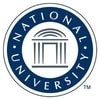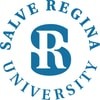Best Online Cyber Security Colleges
Get detailed information about best online Cyber Security colleges and their tuition, accreditation, career prospects, scholarships, admission details and much more
Online Cyber Security Colleges
Cyber Security program teaches a student about the ways and methods through which one can protect devices which are connected via the internet, including hardware, software, and data.
An Accredited Nursing School creates a pathway for the students to enrol in Cyber Security programs offered by the Colleges/Universities which are funded by the federal government or the state government.
The organizations that accredit Cyber Security schools and programs are listed below:
-
Higher Learning Commission
-
Applied and Natural Science Accreditation Commission (ANSAC)
-
Computing Accreditation Commission (CAC)
The subjects which are taught to the Cyber Security students are both theoretical and practical. Some of the subjects which are taught are Data Analysis, Cyber Defense, Cyber Threats, Fundamental Security Design Principles, Information Assurance Fundamentals, Intro to Cryptography, IT Systems Components, Networking Concepts, and System Administration.
An Associate’s degree in Cyber Security requires 60 to 68 credit hours to complete, which normally takes two years.
A Bachelor’s degree in Cyber Security requires almost 120 credit hours and takes four years to complete.
A Master’s degree in Cyber Security requires 36 to 54 credit points, which can be completed in two years.
A Doctorate’s degree in Cyber Security requires 60 to 64 credit hours, which can take three to five years to complete.
There are few requirements which need to be fulfilled before one applies for an admission in the cybersecurity program. The student should have a high school diploma with a minimum of 2.0- 3.0 GPA.
The Cyber Security program teaches an individual about the legal and ethical way of hacking and preventing any cyber threats, including computer coding and software languages.
Missouri State University
Springfield, Missouri
Institution Type: Public
Cyber Security Accreditation: Request Info
Average Federal Student Loans awarded: $5,368
Average Student Loans Awarded: $6,266
Total Programs in Cyber Security (2)
1
Masters Program
1
Graduate Certificate Program
Old Dominion University (ODU)
Norfolk, Virginia
Institution Type: Public
Cyber Security Accreditation: Request Info
Average Federal Student Loans awarded: $7,020
Average Student Loans Awarded: $8,252
Total Programs in Cyber Security (4)
2
Bachelors Programs
2
Graduate Certificate Programs
National University
La Jolla, California
Institution Type: Private Not-For-Profit
Cyber Security Accreditation: Request Info
Average Federal Student Loans awarded: $8,744
Average Student Loans Awarded: $9,988
Total Programs in Cyber Security (1)
1
Masters Program
Northern Kentucky University (NKU)
Highland Heights, Kentucky
Institution Type: Public
Cyber Security Accreditation: Request Info
Average Federal Student Loans awarded: $5,067
Average Student Loans Awarded: $5,461
Total Programs in Cyber Security (1)
1
Undergraduate Certificate Program
Salve Regina University
Newport, Rhode Island
Institution Type: Private Not-For-Profit
Cyber Security Accreditation: Request Info
Average Federal Student Loans awarded: $6,431
Average Student Loans Awarded: $10,313
Total Programs in Cyber Security (1)
1
Graduate Certificate Program
Sam Houston State University
Huntsville, Texas
Institution Type: Private Not-For-Profit
Cyber Security Accreditation: Request Info
Average Federal Student Loans awarded: $5,694
Average Student Loans Awarded: $5,790
Total Programs in Cyber Security (2)
1
Masters Program
1
Graduate Certificate Program
Southern Arkansas University
Magnolia, Arkansas
Institution Type: Public
Cyber Security Accreditation: Request Info
Average Federal Student Loans awarded: $5,227
Average Student Loans Awarded: $5,262
Total Programs in Cyber Security (1)
1
Masters Program
Southern Utah University (SUU)
Cedar City, Utah
Institution Type: Public
Cyber Security Accreditation: Request Info
Average Federal Student Loans awarded: $3,695
Average Student Loans Awarded: $3,906
Total Programs in Cyber Security (2)
2
Masters Programs







